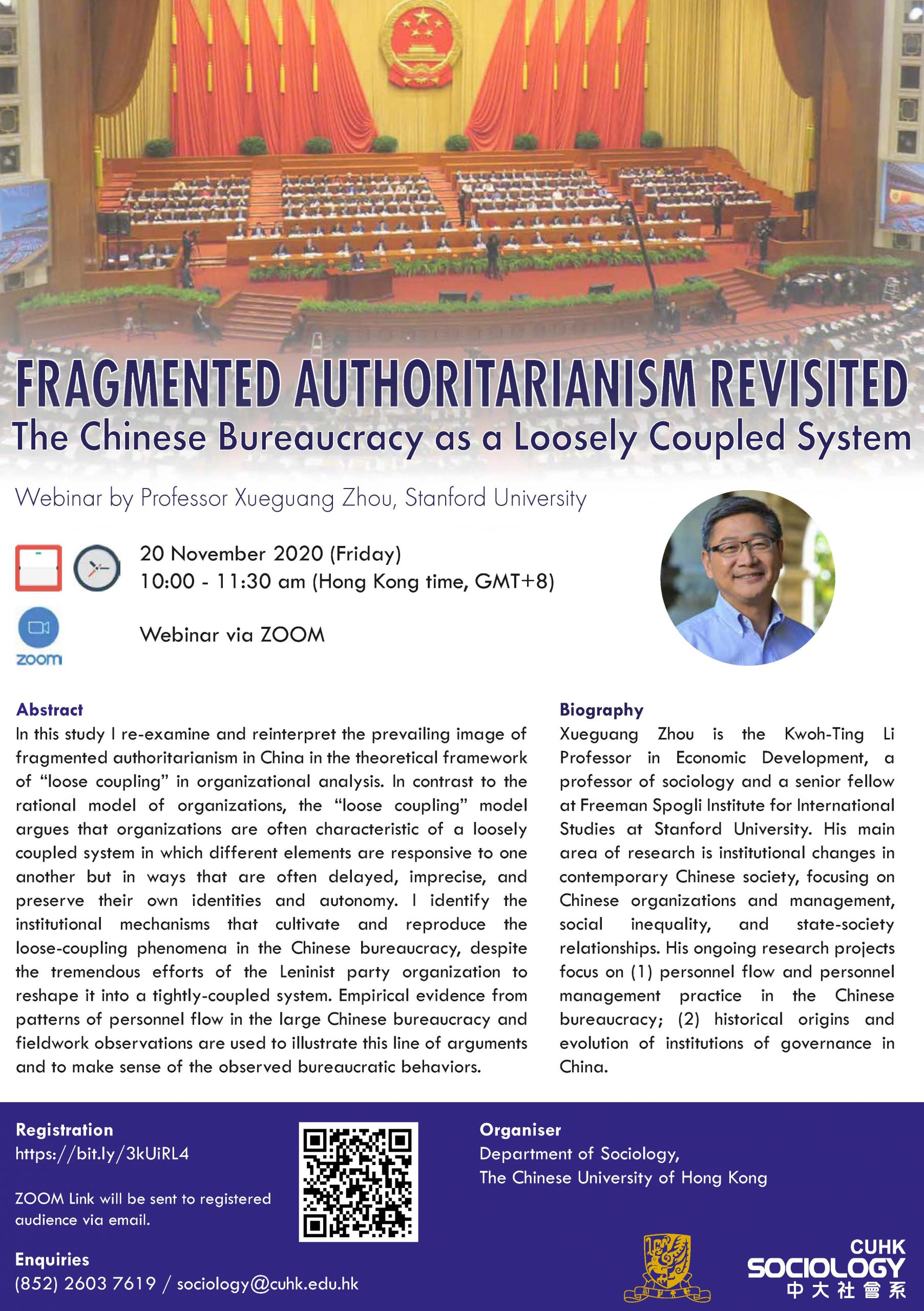
sociology@cuhk.edu.hk
Abstract
In this study I re-examine and reinterpret the prevailing image of fragmented authoritarianism in China in the theoretical framework of “loose coupling” in organizational analysis. In contrast to the rational model of organizations, the “loose coupling” model argues that organizations are often characteristic of a loosely coupled system in which different elements are responsive to one another but in ways that are often delayed, imprecise, and preserve their own identities and autonomy. I identify the institutional mechanisms that cultivate and reproduce the loose-coupling phenomena in the Chinese bureaucracy, despite the tremendous efforts of the Leninist party organization to reshape it into a tightly-coupled system. Empirical evidence from patterns of personnel flow in the large Chinese bureaucracy and fieldwork observations are used to illustrate this line of arguments and to make sense of the observed bureaucratic behaviors.
Biography
Xueguang Zhou is the Kwoh-Ting Li Professor in Economic Development, a professor of sociology and a senior fellow at Freeman Spogli Institute for International Studies at Stanford University. His main area of research is institutional changes in contemporary Chinese society, focusing on Chinese organizations and management, social inequality, and state-society relationships. His ongoing research projects focus on (1) personnel flow and personnel management practice in the Chinese bureaucracy; (2) historical origins and evolution of institutions of governance in China.

